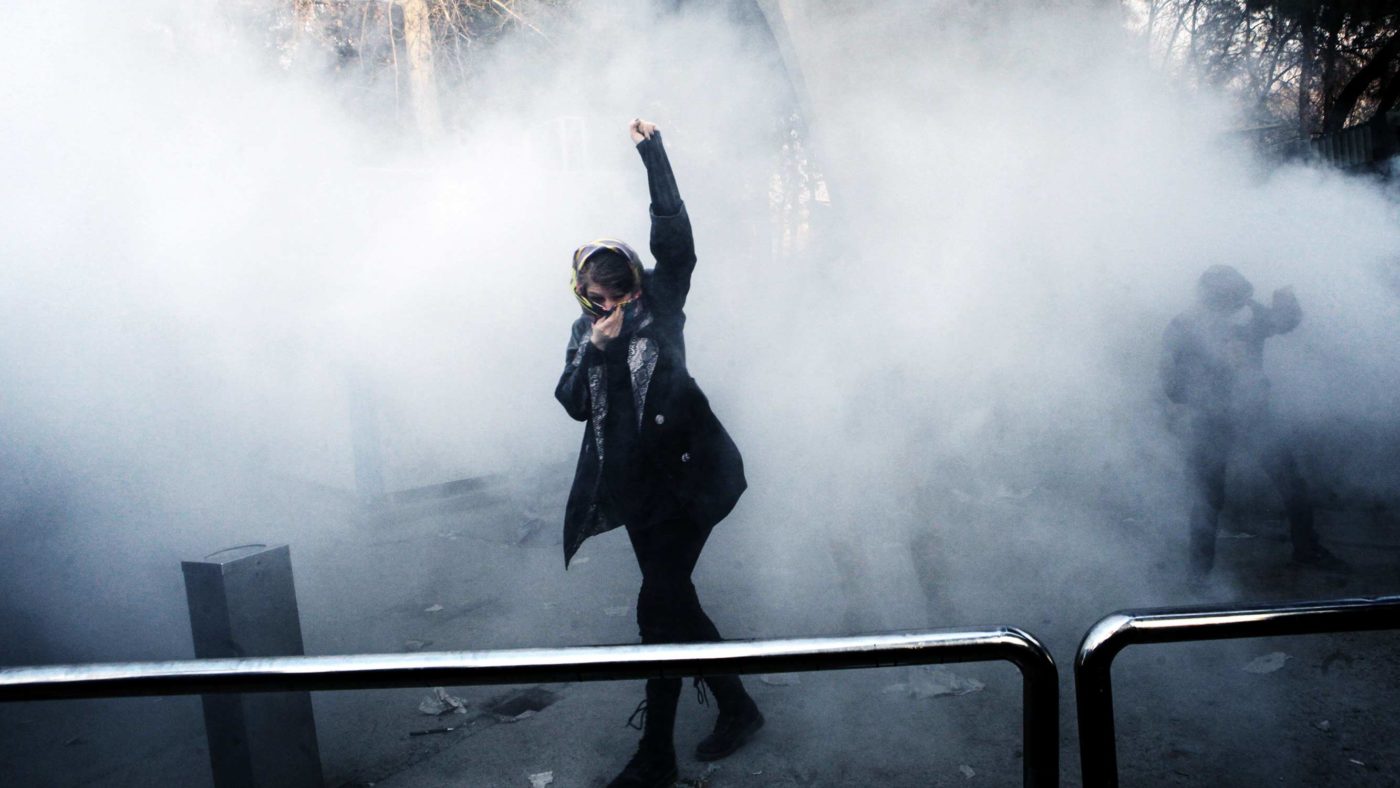In cities across Iran thousands are taking to the streets to protest a brutal theocratic dictatorship. A regime which executes homosexuals, imprisons political opponents and ordains what women can wear by law. You might assume those protesting could count on the inalienable support of the Western Left, the self-appointed champions of political freedom and minority rights. Sadly, in a great many cases, you’d be wrong.
There has always been a section of the hard-left which sees the liberal-democratic West as its chief adversary, and consequently views just about any conflict anywhere in the world through an anti-Western prism. They are prepared to sympathise with virtually any force, from Russian autocrats to Islamic fundamentalists, which promises to stick it to America and her friends. Until quite recently, in Britain at least, they were an embarrassing sideshow. Now they run the Labour Party.
Before his shock accession to the Labour leadership in September 2015, Jeremy Corbyn befriended and defended all manner of violent and despotic factions. Yet even by his low standards there was something exceptionally troubling about his relationship with the Iranian regime. Between 2009 and 2012 Corbyn was paid £20,000 for appearances on Press TV, the Iranian Government’s English language propaganda channel. At any time and under any circumstances, this would have been morally indefensible. The details of Corbyn’s appearances make them even worse.
Corbyn’s time at Press TV coincided with the regime’s brutal suppression of the opposition movement which developed following the flawed June 2009 Iranian Presidential election. I use the term “election” in the loosest possible sense. Numerous opposition candidates were refused permission to run by Iran’s Guardian Council, a 12-strong body appointed by Supreme Leader Khamenei, while the vote itself was marred by fraud. When opposition supporters took to the streets they were met with the bullets, batons and rifle butts of the Iranian state. Dozens were killed and many thousands arrested before the protests were finally subdued in early 2010.
This wasn’t enough for Corbyn to terminate his involvement with Iranian state media. Nor was Ofcom’s decision to revoke Press TV’s UK broadcasting licence in early 2012, after the network broadcast the “confession” of an Iranian journalist which was obtained by torture. Corbyn continued working with Press TV for another six months. Maziar Bahari, the journalist in question, described Western leftists who appear on Press TV as “useful idiots” who “should be really ashamed of themselves”. That is putting it charitably.
Corbyn’s flirtation with the Iranian theocracy didn’t end when he stopped taking money from Press TV. On February 9, 2014 he spoke at an event held in London to celebrate the 35th anniversary of the 1979 Islamic revolution, which brought Ayatollah Khomeini to power. The other speakers were a motley crew of Shia Islamist hardliners and bigots. They included Abdul Hussein Mo’ezzi, then Iranian Supreme Leader Khamenei’s personal representative to the UK and Lord Nazir Ahmed, a disgraced peer who had been suspended from the Labour Party the previous year for blaming his conviction for dangerous driving on a Jewish conspiracy. Most controversially of all, Sayyed Hassan al-Sadr, the UK representative of anti-Western Iraqi cleric Muqtada al-Sadr, also delivered an address. Between 2004 and 2007 Muqtada’s private army, the Mahdi Army, launched repeated attacks on British forces in Iraq killing dozens of British troops.
The speech the now Labour leader delivered, entitled “The Case for Iran” was vintage Corbyn. Lots of criticism of Western foreign policy, including an extended section on the Anglo-Persian Oil Company, and a call for Western sanctions on Iran to be scrapped. But no comment on the Iranian regimes countless human rights abuses, including the suppression of the 2009-10 protest movement. Nor was there any mention of the estimated 4,000-6,000 gay men and women executed by the Iranian regime since 1979, nor the vicious persecution of opposition movements.
Indeed, given Corbyn’s repeated utterances of “solidarity”, the latter point is particularly telling. In 1988 the Iranian state executed 5,000 political opponents, predominantly leftists, who it described as “apostates from Islam”. To this day the regime continues to persecute socialist and trade union activists. Had Corbyn been active in left-wing Iranian politics rather than British, during the post-1979 period, he would have been lucky to avoid execution. Yet none of this stopped Corbyn attending an event to celebrate the 1979 revolution, or from sharing a platform with those who share its poisonous ideology. It seems that anti-Western posturing always trumps left-wing solidarity.
Given Corbyn’s track record, his association with the Iranian state is in many ways no surprise. What is shocking is how few on the British Left seem to care. You’d have thought that affiliating with an ultra-reactionary homophobic dictatorship, whose attitude to women resembles The Handmaid’s Tale, would have been a major obstacle to Corbyn becoming leader of the Labour Party. At the very least, you’d assume it would have led to some awkward and difficult questions. But apparently not. In any case I feel confident in asserting a new rule for British politics in 2018: whenever the hard Left has to choose between advancing human rights and backing an anti-Western regime, it will always pick the latter.


